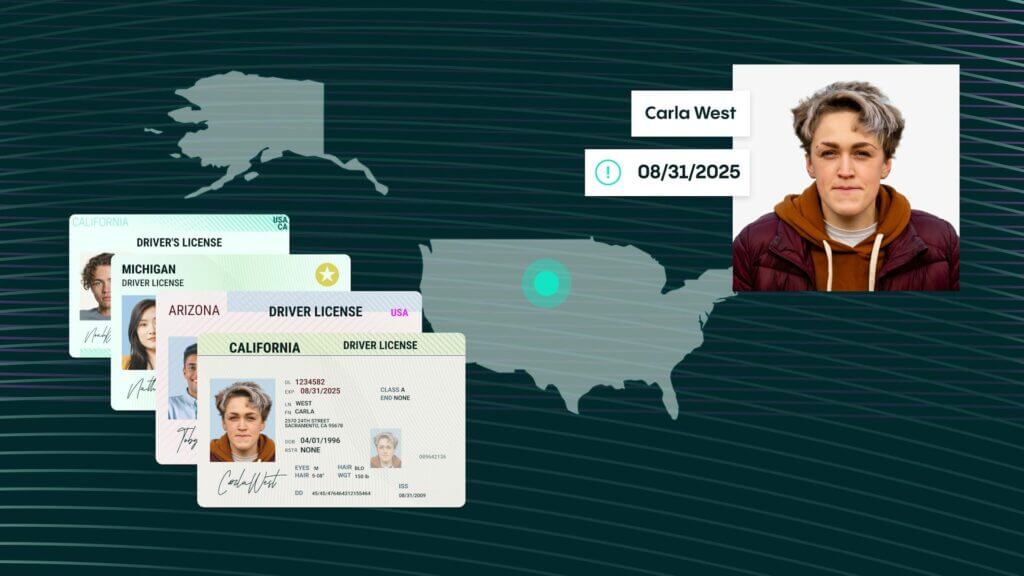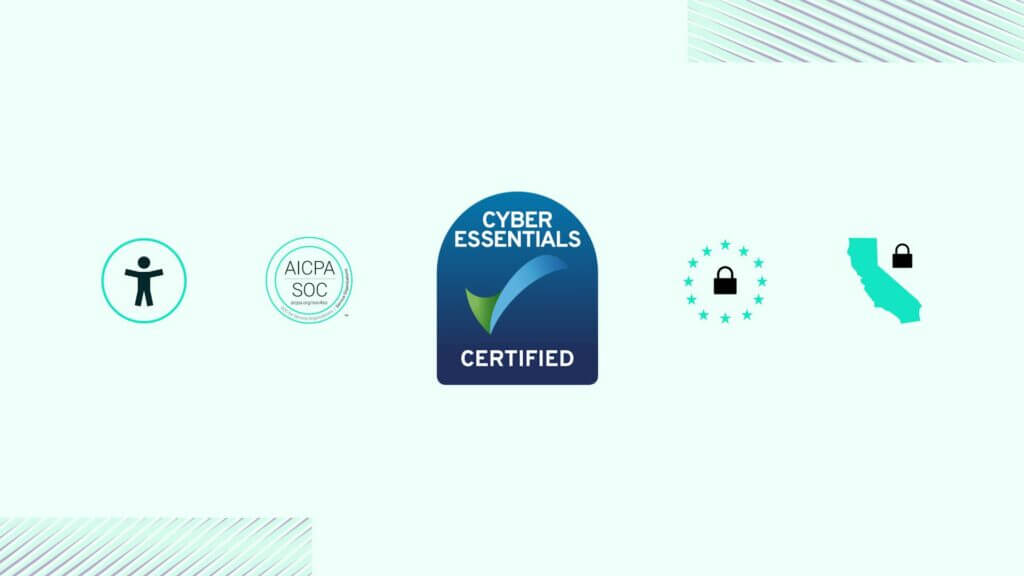Blog Post
The UK online: safety, scams and security
We have surveyed over 2,000 UK residents to reveal how safe people feel online, what scams they have experienced and what safety precautions they take.
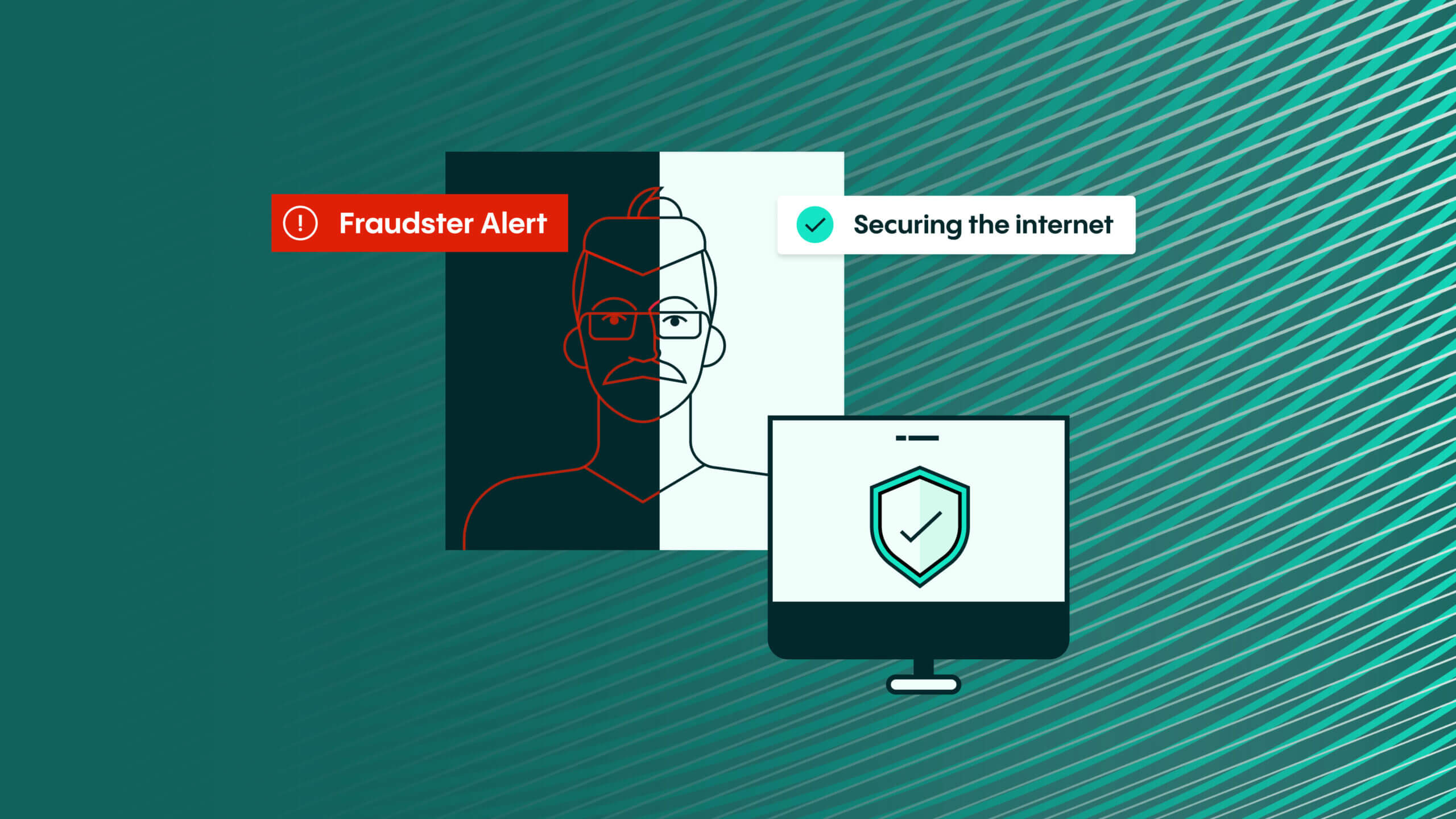
Improved access, infrastructure, and technology has caused internet usage to surge in recent years with over 4.6 billion internet users currently worldwide. However, as the world becomes more digital, so does crime. In 2020 the US had over 1,000 data breaches exposing over 155 million records, and many countries have seen an increase in cybercrime during the pandemic. In fact, the UK saw a 31% increase in cybercrime between May and June 2020, with businesses losing over £6.2 million.
Here at Veriff, we wanted to understand how safe people feel online, what experiences they have had with scams and how the future of identity verification can help people feel safer. We surveyed over 2,000 people across the UK to gather insights and here is what we found.
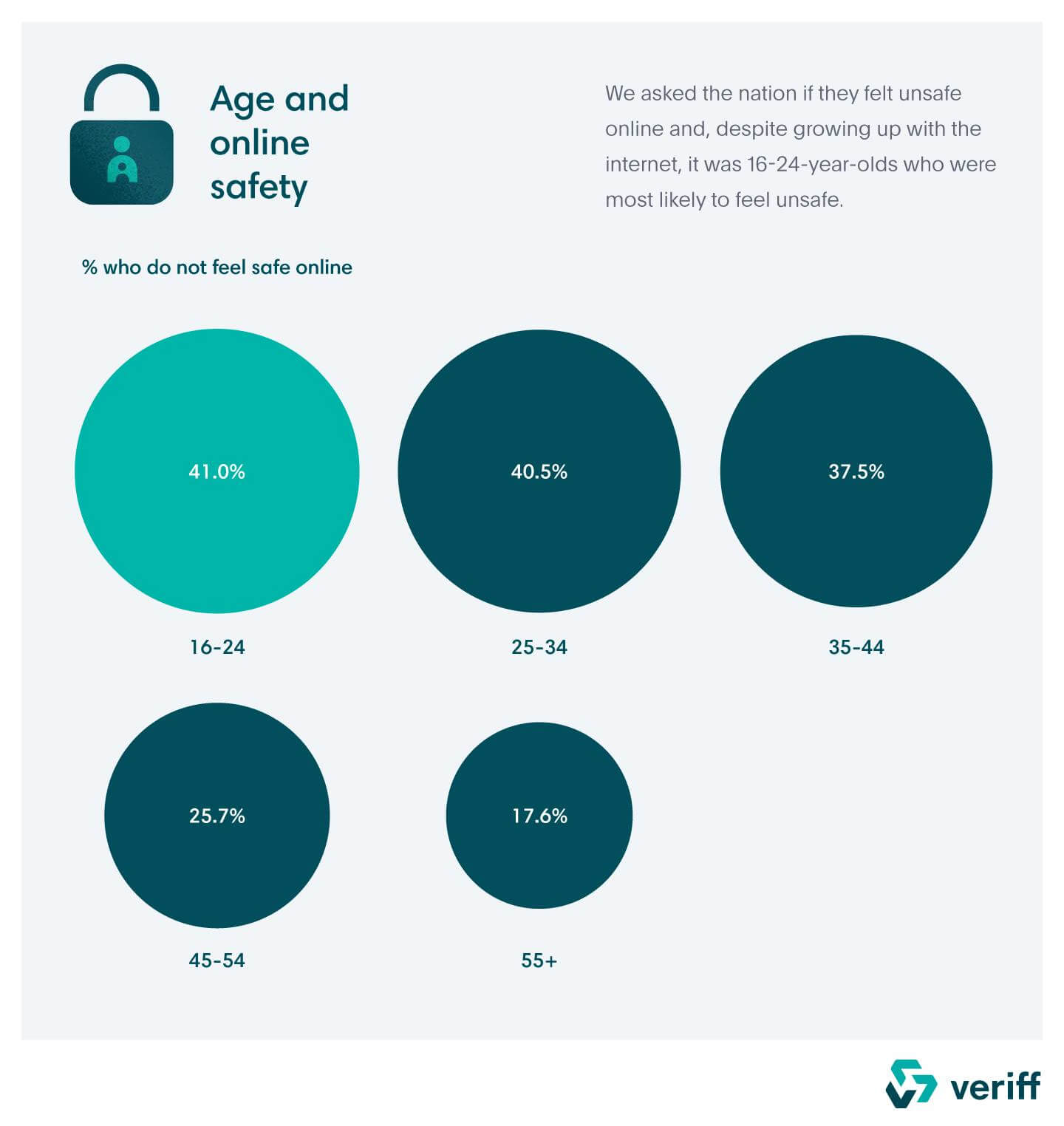
Age and safety online
A recent report from Lloyds Bank found that people aged 18-24 lose an average of £2,630 to fraud, which may help explain why younger generations in our survey felt the least safe online. Overall, 29% of Brits felt unsafe using the internet and people who spent more time online generally felt safer. Less than a quarter (21%) of those spending 30+ hours on the net admitted to feeling unsafe, compared to over a third (35%) who spent no time at all online.
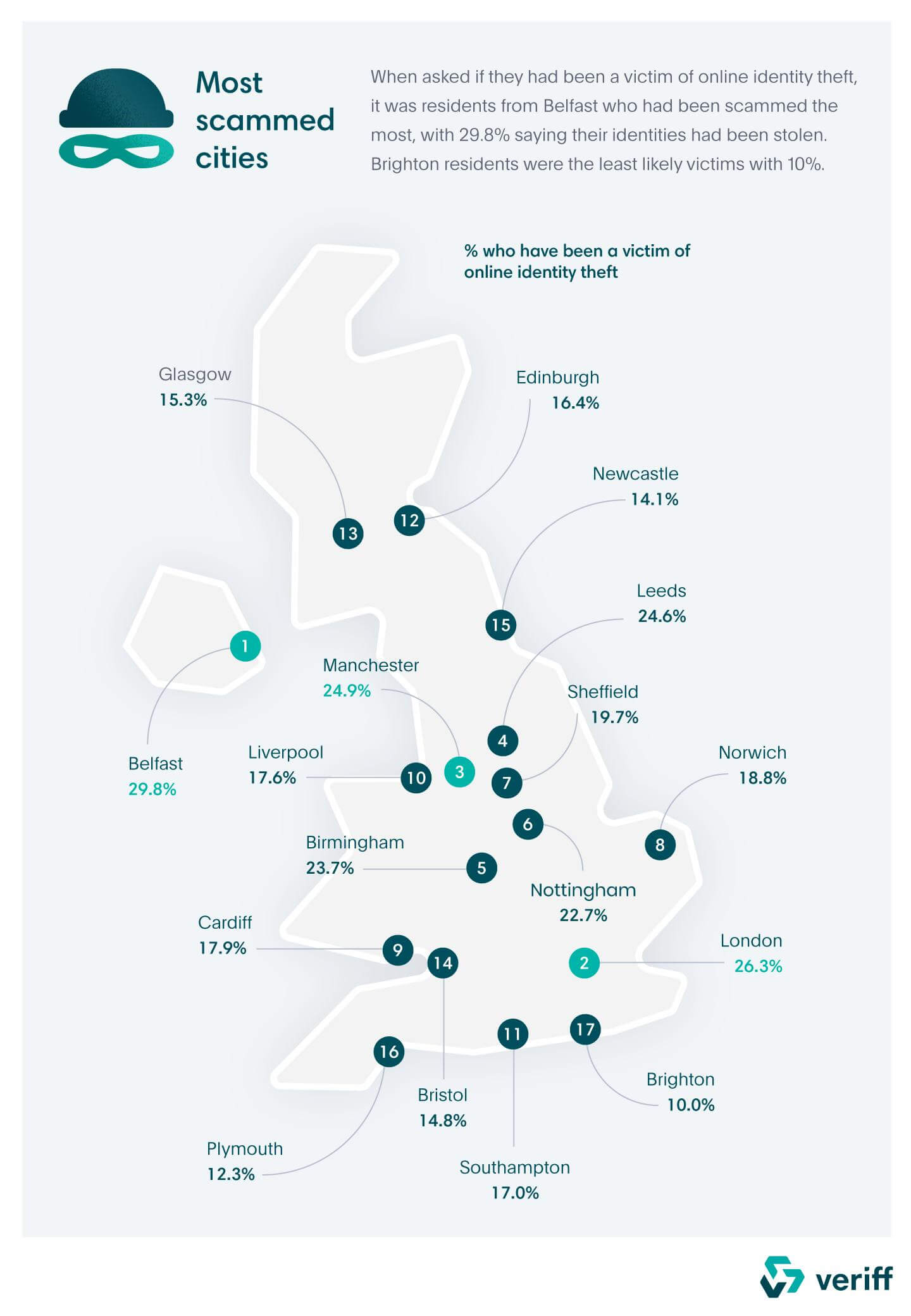
Most scammed cities
With smart cities on the rise, masses of valuable data is now being collected via technology like facial recognition, city apps and motion sensors. Although these technological advancements may be improving the lives of citizens, it also increases their exposure to scams and fraud. Over 21% of UK residents said they had been a victim of online identity theft and, according to our research, Belfast is the most scammed city with almost 30% saying they experienced online identity theft compared to just 10% of Brighton residents.
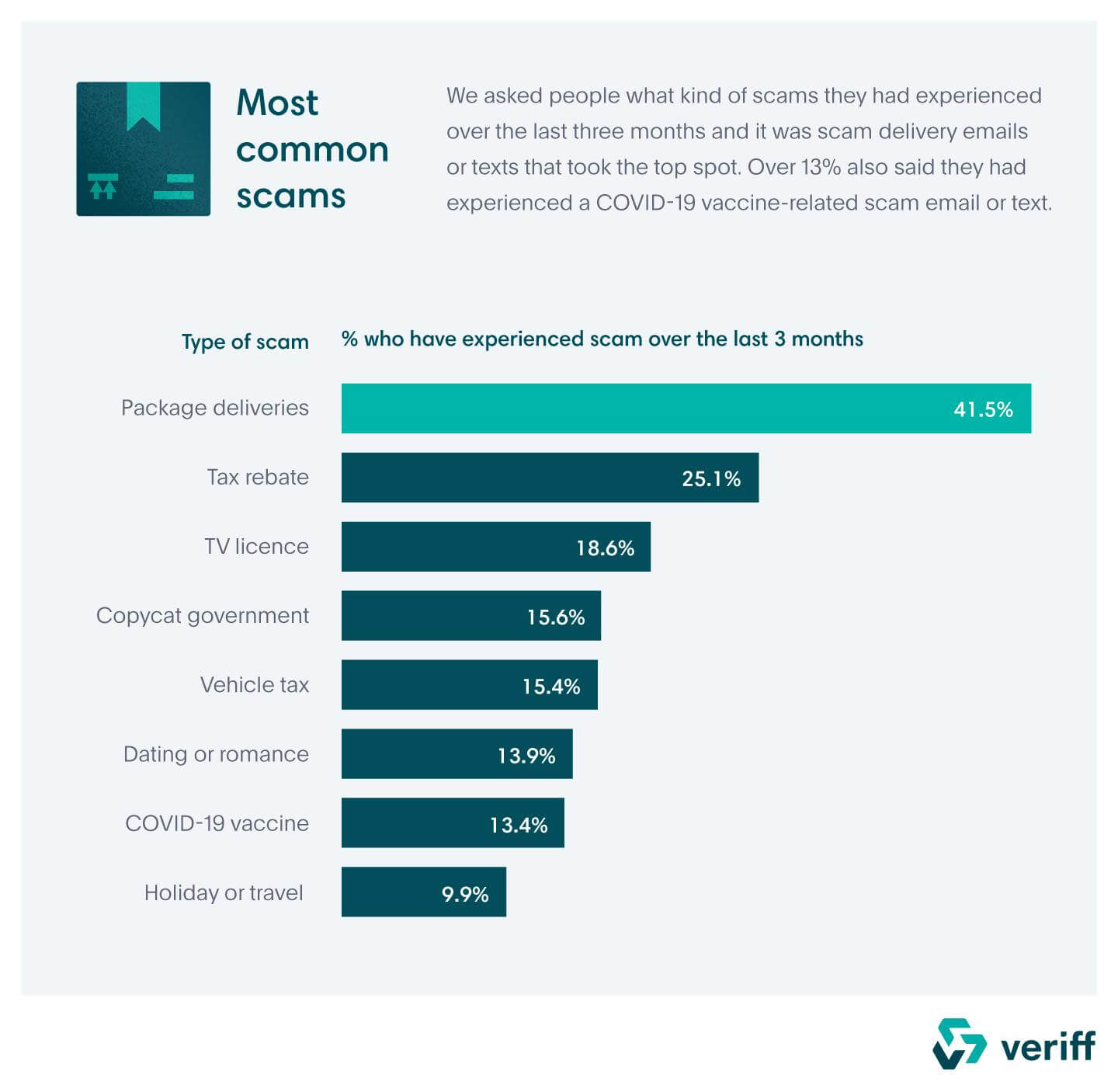
Most common scams
With many shops closed and tight restrictions in place, the pandemic caused a huge increase in online orders. In fact, the Royal Mail delivered 496m parcels during the last three months of 2020, 30% higher than the same period in 2019, so it’s sadly no surprise that scammers have been capitalising. We asked our survey respondents what kind of scams they had experienced over the last three months and fake delivery emails or text messages came top with over 42% saying they had experienced such a scam. Tax rebate and TV licence scam emails or texts came second and third respectively. Over 13% of respondents also said they had experienced a COVID-19 vaccine related scam email or text over the last 90 days.
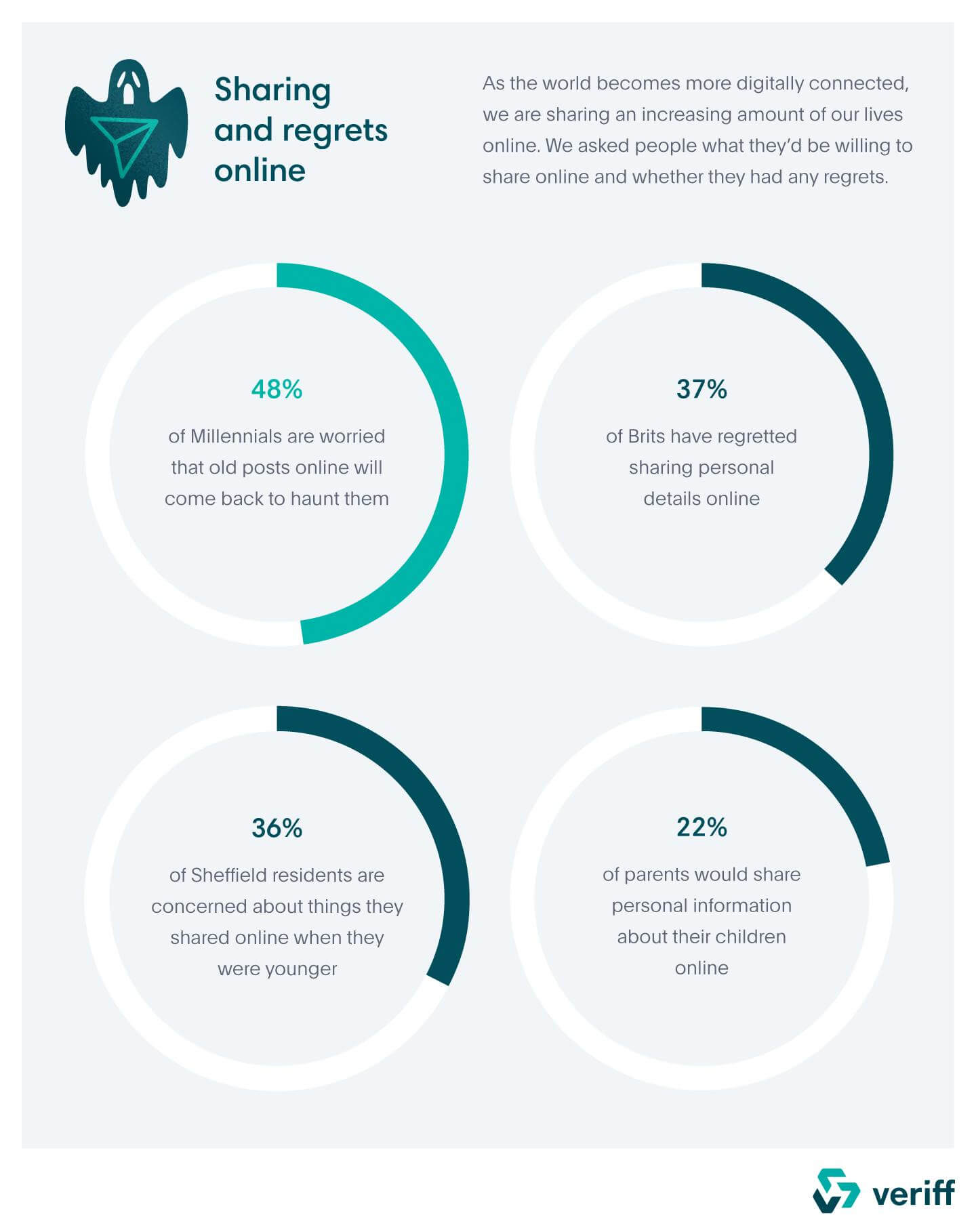
Sharing and regrets online
Every now and then an old tweet or online comment from a public figure finds itself at the heart of a scandal, and with an increasing number of us growing up online, our younger selves may say something that we later come to regret. According to our survey findings, over 31% of UK residents are concerned that old posts will come back to haunt them with millennials being the most worried at 48%. Sheffield was the most concerned city overall when it came to past posts with 36% of residents concerned about things they shared when they were younger. Despite 37% of parents saying that they regretted sharing personal details online, 22% would still share personal details about their children on the internet.
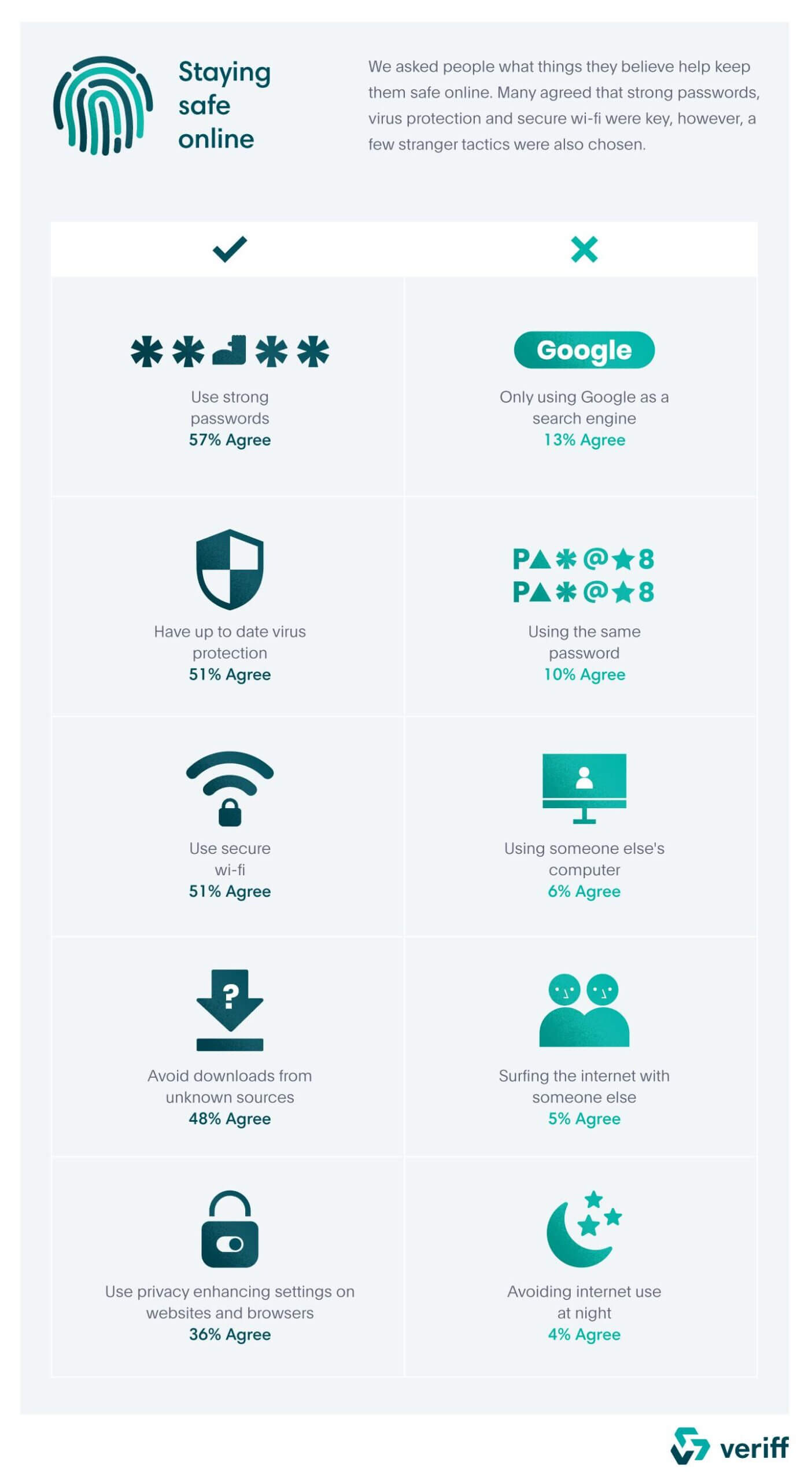
Staying safe online
With cybercrime on the increase, understanding how to stay safe online is more important than ever. We asked our survey respondents what helps keep them safe online and many agreed that strong passwords, up-to-date virus protection and secure Wi-Fi were key to safe browsing. However, some respondents also agreed that some less conventional methods could help protect them on the net. 13% thought only using Google as a search engine would help keep them safe, and 4% believed that avoiding internet usage at night was a good safety precaution!
Methodology:
Survey research was conducted by Censuswide on behalf of Veriff with 2,015 nationally representative respondents across the UK between 26.07.2021 – 28.07.2021. Censuswide abide by and employ members of the Market Research Society which is based on the ESOMAR principles.
How can Veriff help
Veriff is a global online identity verification company that enables organizations to build trust with their customers through intelligent, accurate, and automated online identity verification. Our technology helps to match a person with their government issued ID. Knowing the identity of your customers and users helps to improve online safety for everyone.










